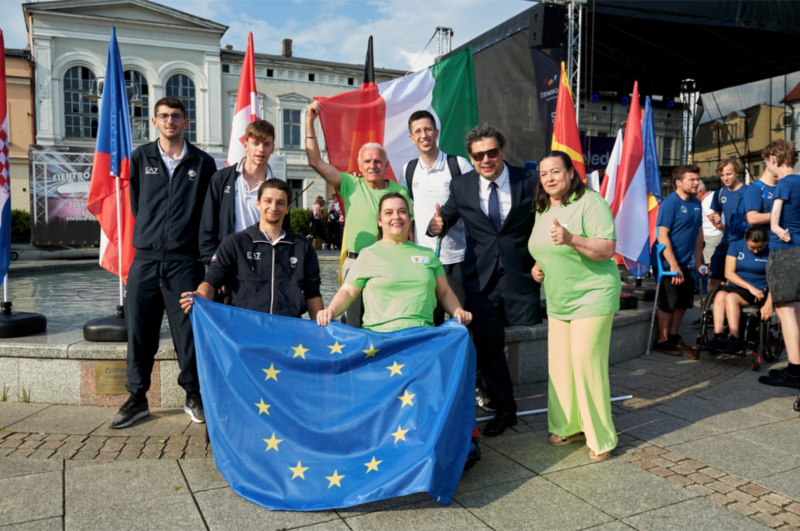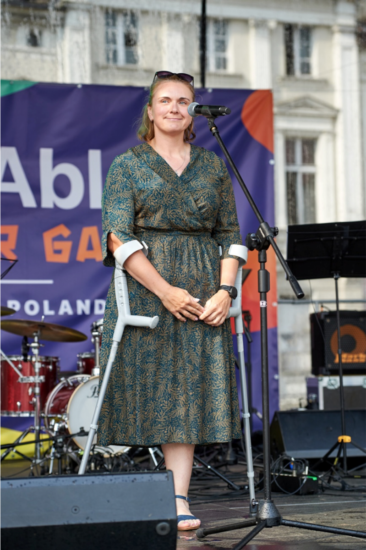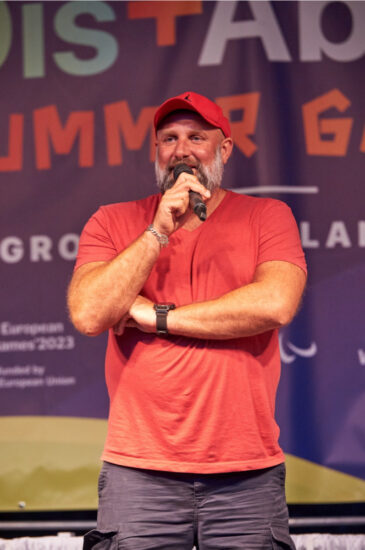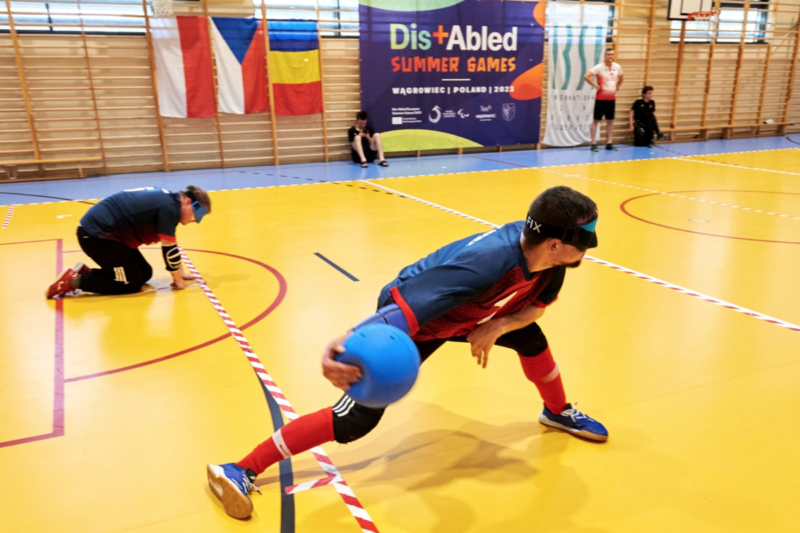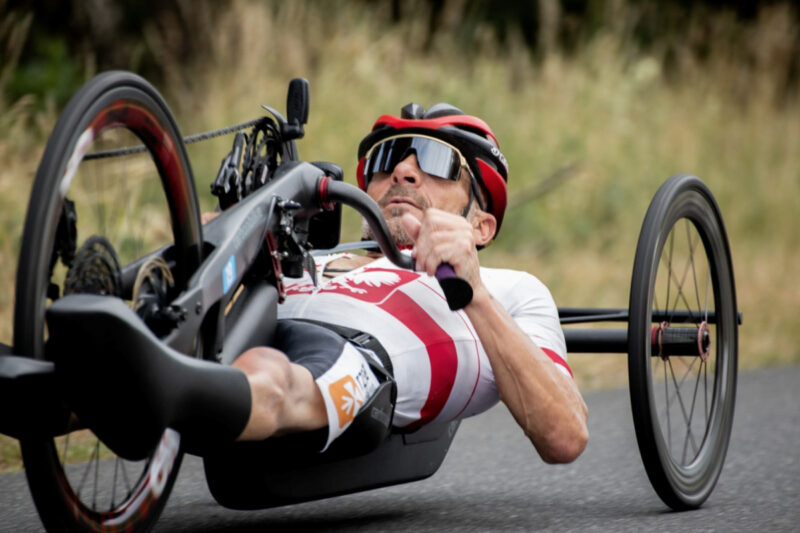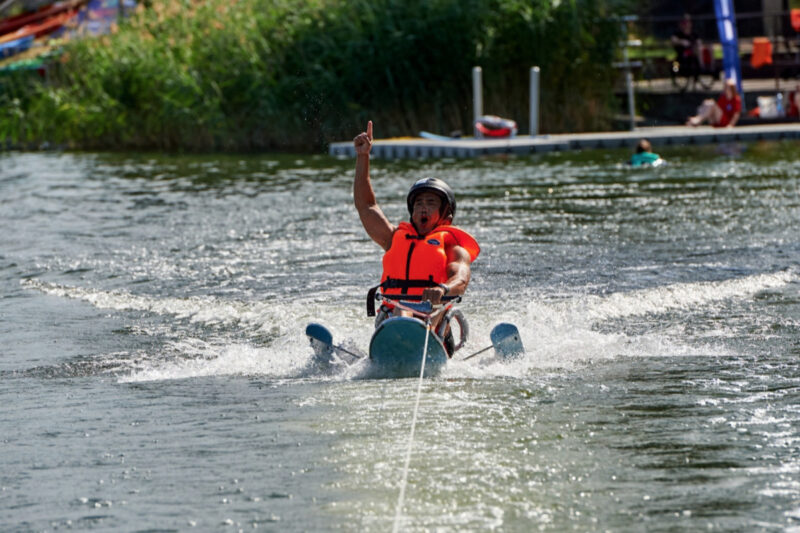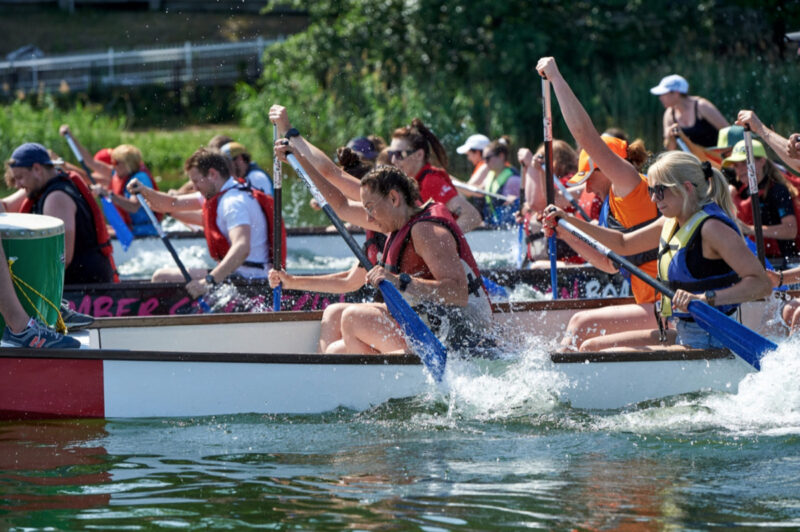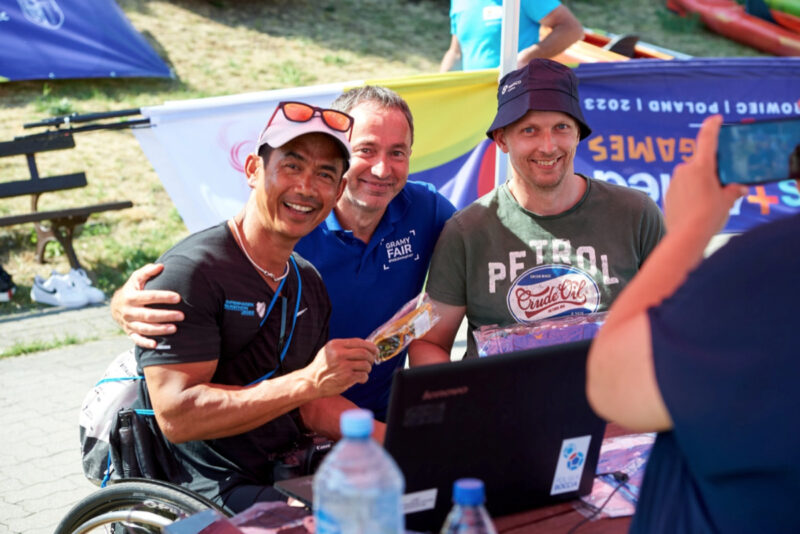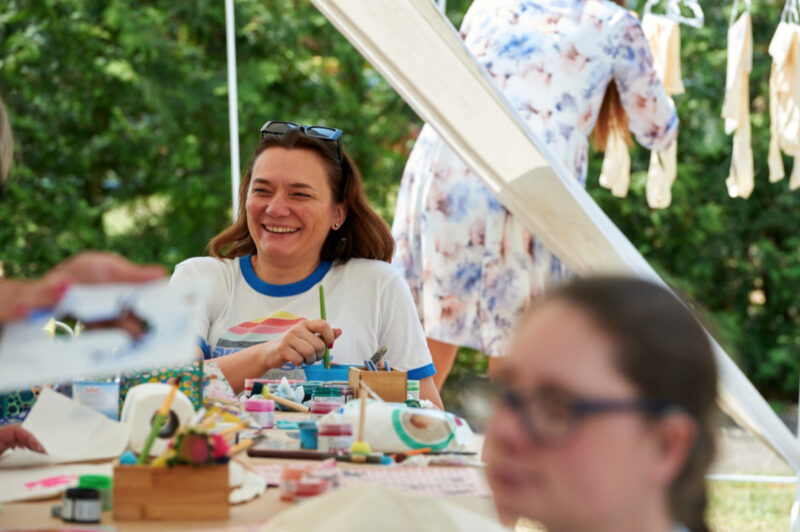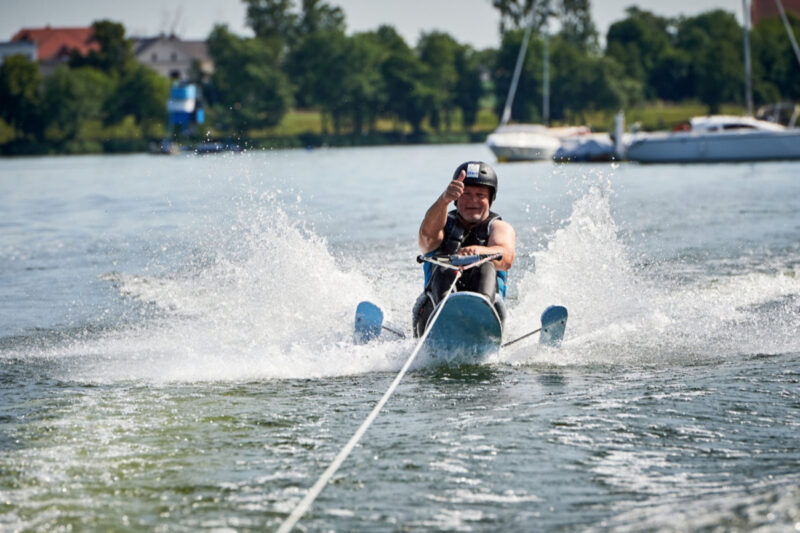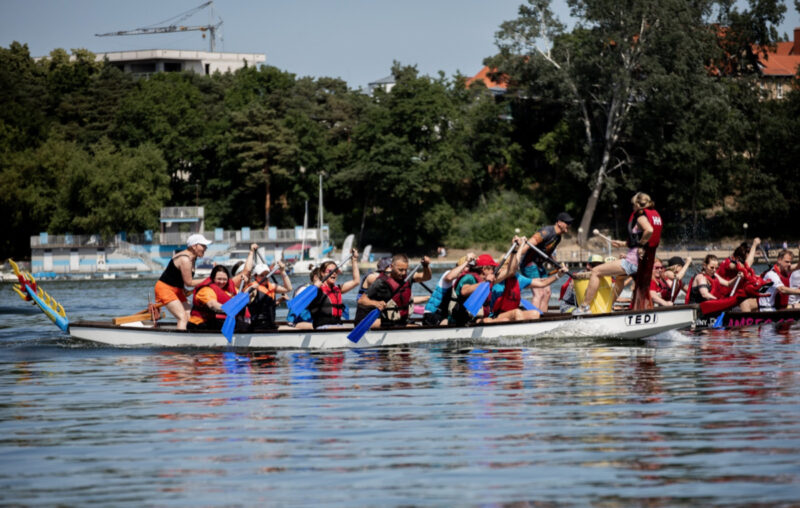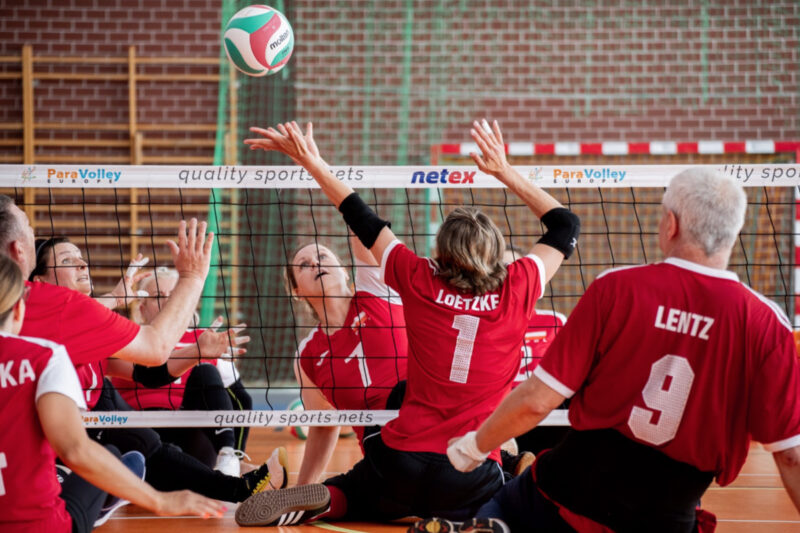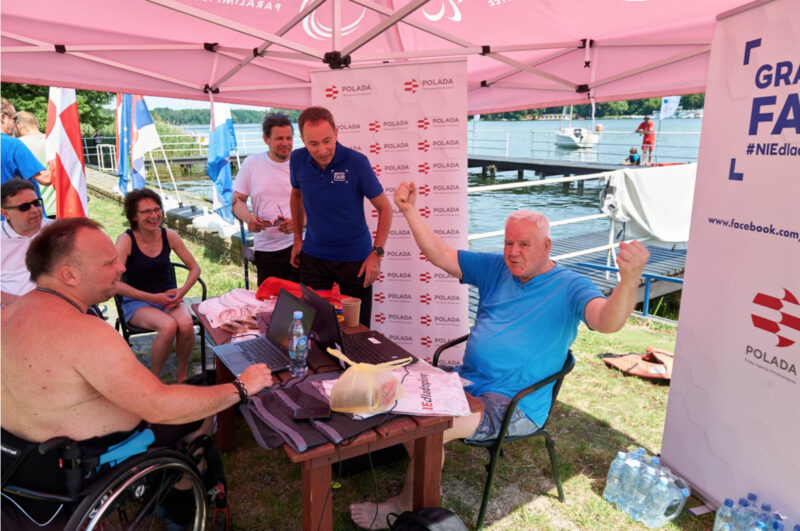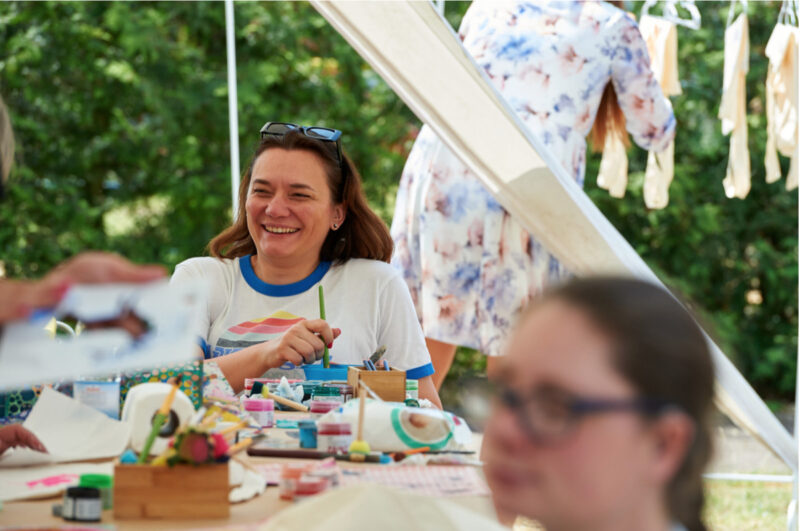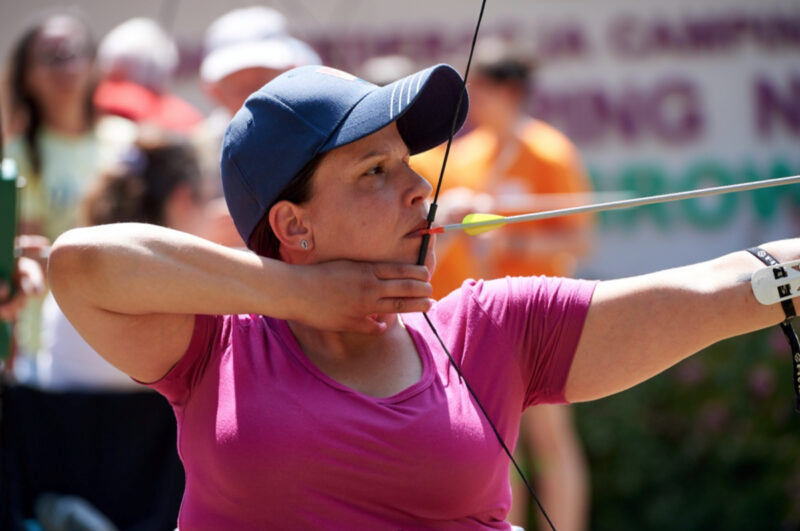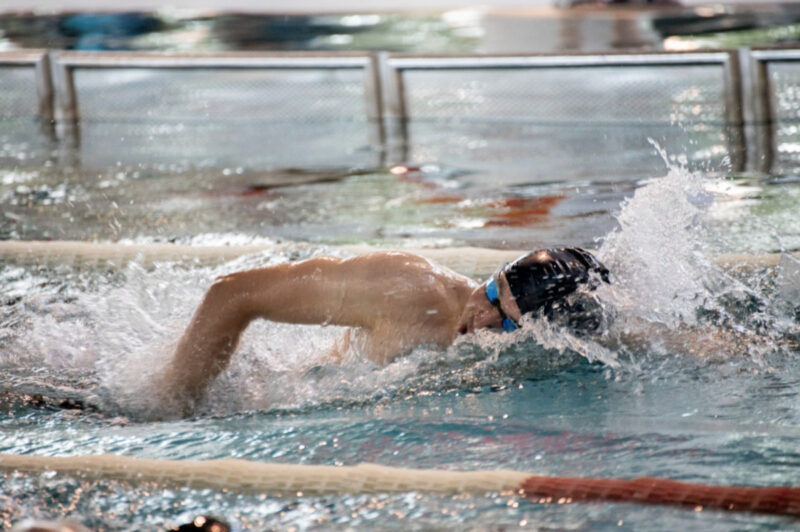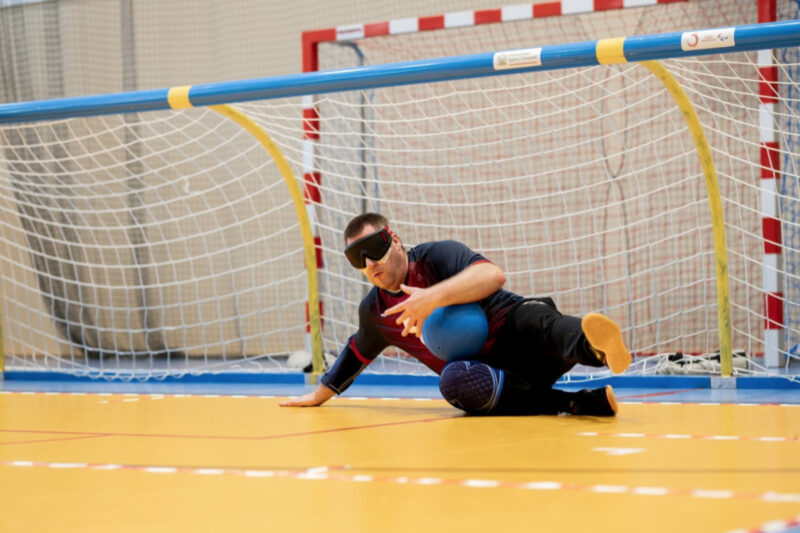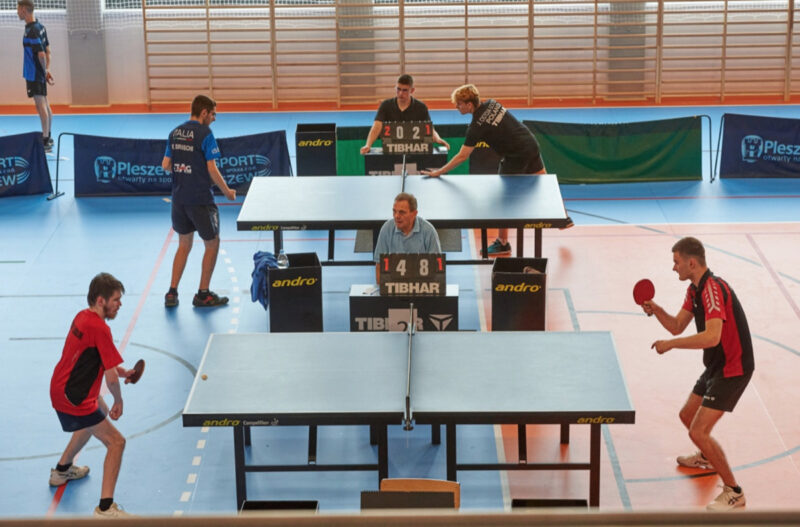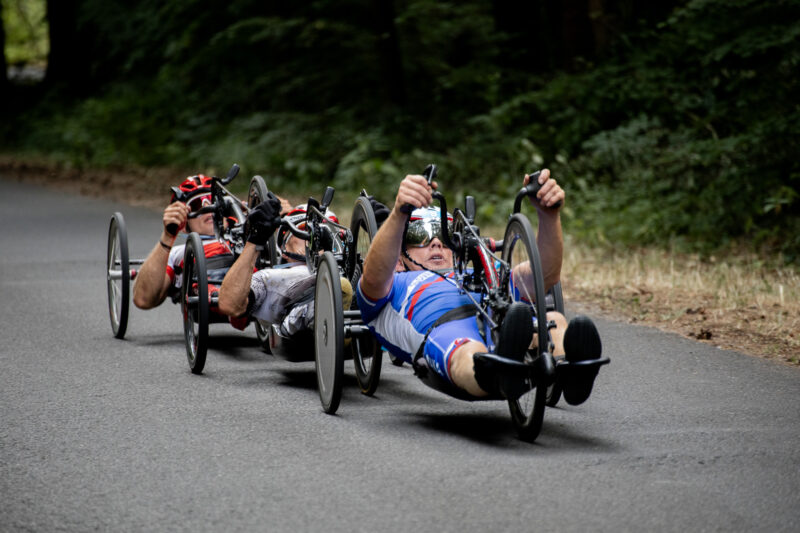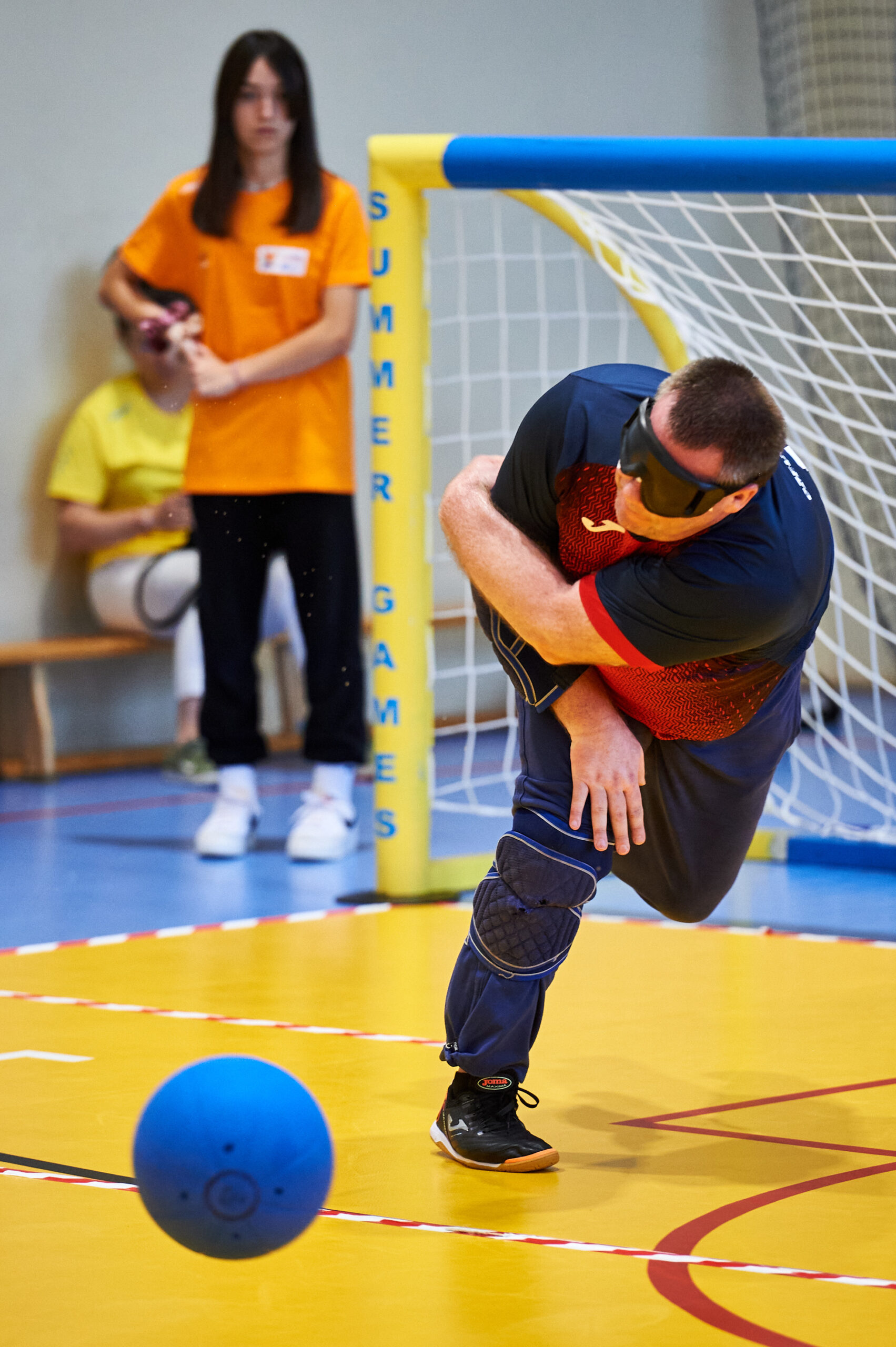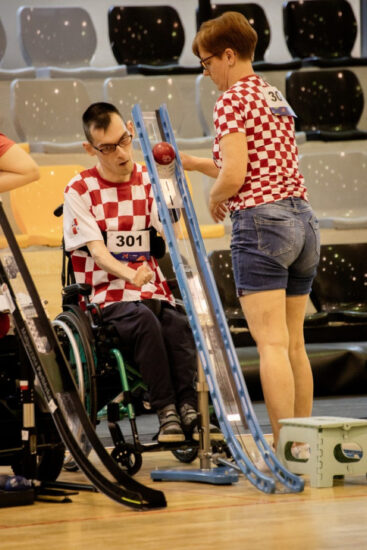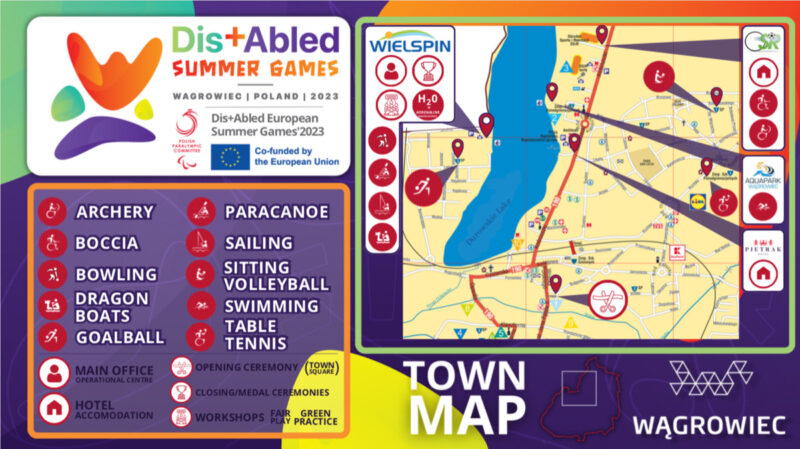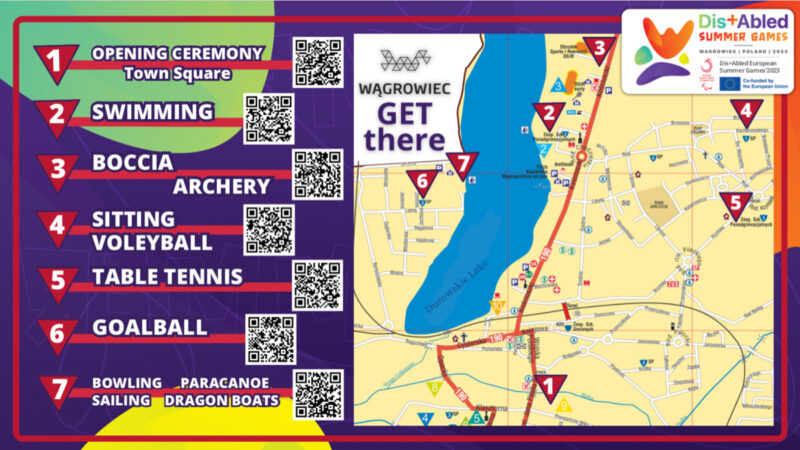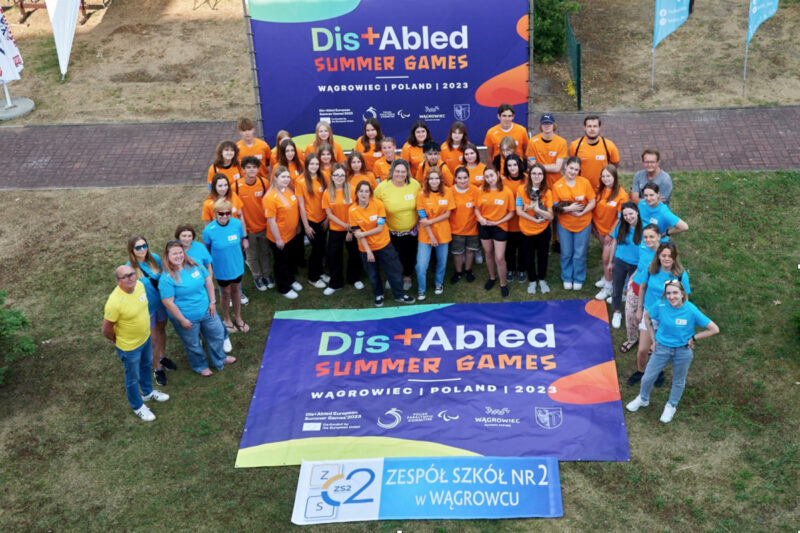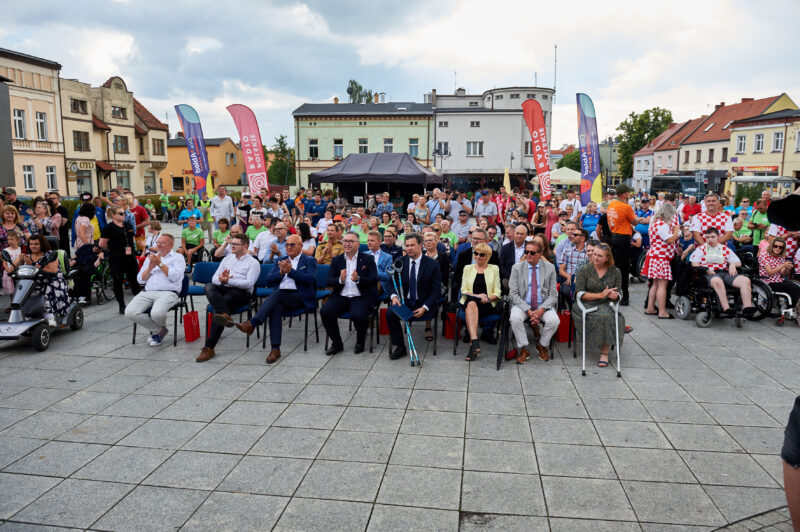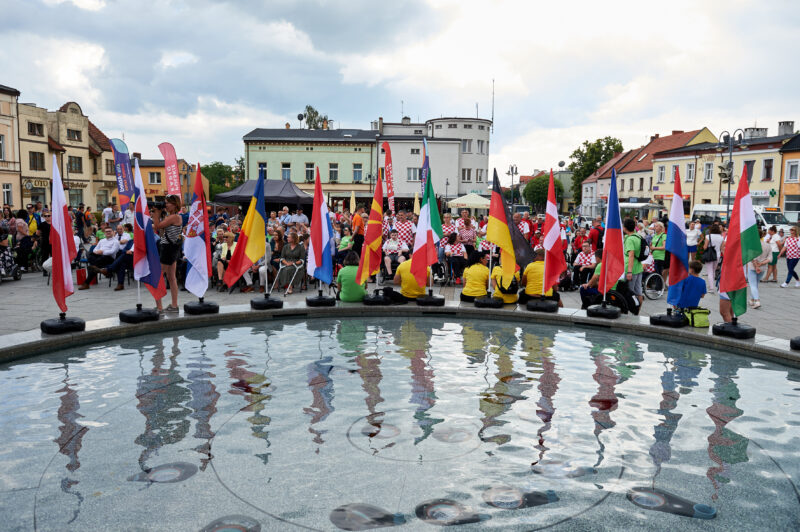Artykuł A competition that unites. Dis+Abled European Summer Games 2023 have ended pochodzi z serwisu Polski Komitet Paralimpijski.
]]>The athletes competed in ten summer disciplines: bocci, sitting volleyball, goalball, swimming, table tennis, bowling, hand cycling, archery, dragon boat racing and sailing. However, it was not the sports results themselves that were most important.
– Today we come together as a community to witness the power of determination, resilience and passion,” said Lukasz Szeliga, president of the Polish Paralympic Committee, during the opening ceremony of the Dis+Abled European Summer Games 2023. – Let this event serve as a catalyst for change, spurring greater commitment to inclusion and accessibility in sports. Let’s create a future where every athlete has multiple opportunities, regardless of their abilities. Let’s continue to break down barriers, challenge preconceived notions and create a world where the sports space is equal for all. Let’s show Europe that the impossible does not exist!
Integration through sport
Milena Olszewska and Artur Siódmiak were the ambassadors of the competition.
She is a three-time Paralympian and two-time bronze medalist at the Paralympic Games (London 2012, Rio de Janeiro 2016). She also counts among her greatest achievements the receipt of the Cup of the President of the Republic of Poland Andrzej Duda in recognition of outstanding sports achievements in the year of the centenary of regaining independence. She is also a multi-medalist at the European Championships and the World Championships – individually and in a mix with Lukasz Ciszek. She is close to the idea of promoting sports of people with disabilities and integration through sports.
He is the co-creator of the greatest successes of Polish handball – together with the Polish national team he reached for silver (2007) and bronze (2009) at the world championships. He especially made his mark in the memory of Polish fans with a goal after throwing across the pitch in the last seconds of the match against Norway – a goal scored in this unusual way after sacrificial defense turned out to be the decisive one for advancing to the semifinals of the 2009 World Cup. He also appeared at the Olympic Games in Beijing (2008), where Poland took 5th place in the handball tournament. He is originally from Wągrowiec – hence the initiative organized in his hometown is close to his heart.
She comes from the world of Paralympians, he – of non-disabled handball players. This is because the idea of the Dis+Abled European Summer Games in Wągrowiec is to bring together athletes with and without disabilities in a joint competition.
„I appreciate these athletes even more.”
– I helped organize these competitions, but it wasn’t until I put on the blindfold that I understood how difficult it was. This makes me appreciate these players and what I have even more,” said one of the people who tried their hand at goalball. Indeed, during the competition there were many workshops and training sessions with the players, intended for anyone who wanted to try.
Accurate goalball is a sport that was developed for the blind and visually impaired. It relies mainly on the senses of hearing and touch. Players play with eye patches and special goggles that keep out the light, so everyone has an equal chance. The lines bounding the field are embossed so athletes can feel them by touch. The game uses a special ball made of rubber, with a bell inside. Thanks to this design, the ball makes sounds that allow the players to track its position and move in the right direction.
Competition in this spectacular discipline was held from the beginning of the competition.
– At the start of the competition, we managed to form three national teams – the U19, which goes in two weeks, on July 11, to Brazil for the world championships, the Polish A team and the Polish B team,” said Piotr Szymala, coach of the Polish team in this discipline. – We consider the first day of the competition to be very fruitful, we managed to win against the Czech and Romanian teams. On Tuesday the competition will continue, and on Wednesday we will know the teams that will qualify for the finals.
Competition has also begun in archery, bowling, swimming and bocci. The latter can be called a strategy game, and its rules resemble pétanque or boules. It is designed for people with severe physical disabilities. Boccia can be played as an individual or team competition. The games are played on a court measuring 12.5 meters long by 6 meters wide, divided into six rectangular zones. The players’ task is to place their ball as close as possible to the ball-target (a white ball labeled “jack” or “ball”). They can do this by throwing from their hands, throwing from a ramp (a special tool that allows people with movement difficulties to move the ball) or by bouncing the opponent’s ball off the target ball.
– Today was a nervous day, as I had a wheelchair breakdown in the morning,” reported Malgorzata Perlinskaya, a national team athlete in bocci. – Fortunately, we arrived at the competition on time and despite the lack of training before the start, I managed to beat my opponent. As soon as we finish our bocci competition, I will definitely go to other arenas to cheer on the male and female athletes.
“We are happy to be here.”
– This championship is such a novelty,” said Rafal Czuper, a table tennis player and two-time Paralympic runner-up. – I have never competed at such a competition. There is a very cool integration. The competitions are well organized.
Table tennis is one of the disciplines in which the competition continued from the second day. It is one of the most popular sports around the world for people with disabilities. In Wągrowiec, in addition to Poles, at the tables we saw players from Italy, Serbia and Germany.
– We are very happy to be here and play with excellent players,” said Serbian Mihailo Radovanovic. – All over the world Serbia is associated with tennis and Novak Djokovic, so I also try to make Serbia famous, but through table tennis. I come from a small town in Serbia and I played tennis since I was a child, because there my cerebral palsy and my disability didn’t bother me. When I went to college, I started teaching tennis to children, until one time a coach saw me and told me to take up table tennis professionally. Now my dream is the Paralympic Games in Paris.
The athletes admitted that the competition in Wągrowiec was a great place to get to know each other better and talk to athletes from all over Europe, exchange experiences and make new friends.
Also competing on the second day were bocci, goalball, archery, bowling, swimming, as well as hand cycling – racing on so-called handbikes. The cyclists raced in the town of Potulice, located near Wągrowiec. The MH4 class was won by Rafal Wilk, ahead of Jakub Staszkiewicz. The best in the MH3 class was Rafal Szumiec, but all three riders fell at the finish line practically simultaneously.
– A very good team ride,” assessed Rafal Szumiec. – Together with Kuba Staszkiewicz we chased Rafal Wilk and succeeded, thanks to which the end of the race was so exciting for the fans.
– We all rode into the finish line together, and right after the race I wasn’t sure yet if I had won,” confirmed Rafal Wilk, our three-time Paralympic champion. – I had the lead for most of the race, so I wanted to help Hubert Komorowski on the course, which caused my opponents to catch up with me before I knew it. However, I am glad that centimeters decided that I won.
“You can play sports at any age”
Wednesday, the third day of competition, began with heavy rain, which meant that the archery competition had to be delayed slightly. Fortunately, the weather quickly improved, and the fleeting precipitation later was just a respite from the heat. At the archery range one could see archers from the Czech Republic, Slovakia and Poland.
– I come from Ukraine, I moved to Poland with my family before the war broke out,” said Kseniya Markitantova. – Because of the accident I became a disabled person, but sports and archery allow me not only to do what I love, but also to develop and dream. I worry a lot about my loved ones who live in Kiev, but like everyone else I believe that someday this nightmare will end.
Kseniya was the best in the block bows, in which Slovak Marcel Pavlik also showed off his skills. The athlete surprised with how well he speaks Polish.
– When the pandemic broke out, we couldn’t train in Slovakia, so we started doing it in Poland. Thanks to this, I quickly learned to speak your language, which is very similar to ours,” he recounted. – I am impressed by the organization of this event. It’s good that in Poland the Paralympic sport is developing so much and the athletes are being recognized, because with us it’s a bit worse. Fortunately, we are not far away, so whenever we are invited, we will definitely visit you.
Anna Hillebrandt-Pogorzelska, who nearly 51 years ago represented our country at the Fourth Summer Paralympic Games in Heidelberg, where our team made its debut, is also eager to visit Poland. The Start Poznań athlete then won four medals in para-swimming – two gold and two silver.
– I am incredibly happy that Paralympic sport is developing so much in our country,” she said. – I also took part in swimming competitions myself, which shows that you can do sports at any age. After all, I was a swimmer, and that’s something you don’t forget, and even though I was initially offered the opportunity to compete in bowling, I said I would reminisce about the years of my youth.
Anna Hillebrandt-Pogorzelska currently lives in the Netherlands and came to Wągrowiec with her husband.
– Both in the past and today, competing and playing together was and is a chance to make international friendships, which sometimes, despite the distance, can turn into love, she said. – That’s exactly what happened for me, as I met my future husband – a Dutchman – during the 1976 Toronto Games.
“To make inclusive sports unite players”.
The final chord of the sports competition was the spectacular competition on the water and the final game of sitting volleyball. The races of sailboats, dragon boats and kayaks provided the participants with incredible emotions. On the charming Lake Durowski, spectators could admire the perseverance and strength of the competitors.
Water sports are an extremely passionate form of activity that combines both the beauty of nature and the skills of the athletes themselves. They also create an excellent platform for the integration of people with and without disabilities.
– The lake in Wągrowiec is made for water sports,” stressed Romuald Schmidt. – The Wielspin center is adapted for people with disabilities, so accessibility to the water surface is just perfect for them. We want to give such an impulse so that the ideas we implement in Poland also in terms of integration find fertile ground abroad. Guests from all over Europe have come to us, and we would very much like the inclusive sport to connect players in other countries as well.
The dragon boat regatta is undoubtedly one of the most spectacular struggles on the water.
– Dragon boats originated in China, where they were sailed several thousand years ago,” said Faustyna Andrzejak, captain of the dragon boat team in Poznan. – They came to Poland in the 1980s, and now there are clubs in every major city with competitors. The boats we sailed in Wągrowiec are 10-person boats, but there are also 20-person boats. There is also always a drummer on the boat, pounding out the rhythm, and a helmsman. During the training for volunteers and participants, we taught them how to sit on the boats, how to properly hold the oars, similar to the oars of canoeists, and how to row them, and at the end we held races, which were full of excitement.
The competition in team sports closed with the final struggle of the sitting volleyball tournament. This discipline is designed for people with physical disabilities, and the rules of the game are very similar to those known from classic volleyball. The match lasts until three sets are won, and a set is won by the team that scores 25 points with a two-point lead.
Non-disabled players can also participate in the sport. This usually happens at amateur competitions and during sparring matches. On the court, however, non-disabled players have no advantage over players with disabilities, so the competition is extremely interesting.
– We even played against able-bodied players from the extraliga, where players often lost to our teams,” recounted Adam Malik, coach of the Polish women’s national sitting volleyball team. – This shows how interesting this sport is. It certainly integrates the two communities wonderfully.
Not just sports
Not sport alone is the life of such a great event. In addition to sports competition, workshops on anti-doping education, prepared by POLADA, and so-called “green practices” awaited those taking part in the event, during which, under the guidance of experts from the Ministry of Climate and Environment, one could learn how we can protect our environment in a few simple steps.
Workshops on anti-doping and clean sport compliance are an increasingly common sight at competitions. POLADA, which is the legal successor to the Commission for Combating Doping in Sport, was established in mid-2017. Since then, the agency has grown, and activities related to the fight against doping in sports have gained new momentum. An important factor in this process was the actions of the Minister of Sport and Tourism, Witold Bańko, who played a key role in promoting Polish anti-doping initiatives.
– Through our workshops we wanted to get athletes interested in the issues of combating doping in sports,” said Grzegorz Borkowski, head of the Information and Education Department of the Polish Anti-Doping Agency. – During them, we presented the most important rules that athletes must remember, especially those with disabilities, who often take drugs for health reasons. To avoid the possibility of their unnecessary disqualification, they need to have knowledge of what is and what is not doping. During the workshop, participants were able to solve a quiz from the world anti-doping organization, and the best ones received small gadgets.
In turn, the workshop prepared by experts from the Ministry of Climate and Environment was aimed at raising environmental awareness among participants, athletes and coaches. The organizer set itself the task of presenting practical and innovative solutions that can help protect the environment and reduce the negative impact on ecosystems. Participants were able to make eco-friendly bags with their own hands and learn how to properly segregate trash.
– The entire Dis+Abled European Summer Games were held in the spirit of ecology,” said Katarzyna Urbanska, co-organizer of the competition. – Our meals were served on paper plates, and our athletes were transported to each arena by eco-friendly hybrid and electric buses. During the Ministry of Climate and Environment’s environmental workshops, we painted eco-friendly bags, ideal for reuse, such as when shopping. We also learned how to properly segregate trash, how not to waste food, and at the end each participant got a bottle with a filter to avoid creating completely unnecessary plastic trash. We are all responsible for our planet and need to take care of it.
Sport as a catalyst for change
The Dis+Abled European Summer Games 2023 have come to an end, but organizers are confident that these few days have succeeded in demonstrating the enormous potential of the Paralympic summer sports as a powerful tool for social inclusion. It’s a path to truly equal opportunities for people with disabilities, not only in sports, but also in everyday life.
Joint competition, mutual learning, daily cooperation is an invaluable source of benefits for everyone – both participants and organizers, colleagues, volunteers. It is worth emphasizing the active participation of the latter in particular. Without volunteers, the planned activities would not have had a chance to happen. It was they who interlocked the individual elements of the competition and the whole environment, themselves acquiring skills useful in life and work. Mutual exchange thus took place on many levels.
is+Abled European Summer Games 2023 once again showed that sports can be a catalyst for change that goes far beyond the competition of the athletes themselves. It can naturally become a foundation for understanding and acceptance. As a result, this kind of project is not just a few June days together. It’s also an excellent opportunity to promote diversity – both among the athletes and among the spectators – and the beginning of long-term change.
The competition was a time full of emotions, triumphs and friendships. Once again, it proved that sports have no boundaries, and although competition is written into it – it can truly unite.
**
The organizer of the Dis+Abled European Summer Games was the Polish Paralympic Committee. The event was co-financed by the European Union’s Erasmus+ program. The event was held under the honorary patronage of the Ministry of Environment and Climate and Minister of Sport and Tourism Kamil Bortniczuk. Media patrons of the event were TVP Sport, TVP 3 Poznań, Polish Radio and the niepelnosprawni.pl portal.
Artykuł A competition that unites. Dis+Abled European Summer Games 2023 have ended pochodzi z serwisu Polski Komitet Paralimpijski.
]]>Artykuł Dis+Abled European Summer Games – Last day pochodzi z serwisu Polski Komitet Paralimpijski.
]]>Sailing boat, dragon boat and canoe races provided the participants with incredible emotions. On the charming Durowski Lake, spectators could admire the perseverance and strength of the competitors as they fought for victory on the water courses.
Water sports are an extremely exciting activity that combines both the beauty of nature and the skills of the athletes themselves. They also provide an excellent platform for the integration of people with disabilities, as through them, people with different types of dysfunction can actively participate in competition, raise their sporting level and enjoy training on the water. These values were emphasised by the Secretary General of the Polish Paralympic Committee, Romuald Schmidt.
“The lake in Wągrowiec is made for water sports. The Wielspin centre is adapted for people with disabilities, so accessibility to the water is just perfect for them. We want to give such an impulse that the ideas we pursue in Poland, also in terms of integration, find fertile ground abroad. We have had visitors from all over Europe, and we would very much like inclusive sport to connect players in other countries too.”
Dragon boat races are undoubtedly one of the most spectacular struggles on the water. They stem from a long tradition in Chinese cultures and are now enjoying increasing popularity around the world. In this discipline, usually between 10 and 20 paddlers compete in specially constructed boats, often decorated with colourful patterns and dragon heads on their bows.
Faustyna Andrzejak
Captain of the Poznan dragon boat team.
“Dragon boats originated in China, where they were sailed several thousand years ago. They came to Poland in the 1980s, and now there are clubs in every major city with competitors. The boats we sailed on in Wągrowiec are 10-person boats, but there are also 20-person boats. There is also always a drummer on the boat beating out the rhythm and a helmsman. During the training for volunteers and participants, we taught them how to sit on the boats, how to hold the oars correctly, similar to canoeists’ oars, and how to row them, and at the end we held races, which were full of excitement.”
Katarzyna Urbańska
Participant in the dragon boat race.
“I didn’t expect that sailing in a boat with 10 people you can get so tired. It was hot, but also wet and most importantly my team won, so I’m very happy.”
The competition in team sports closed with the final competition of the sitting volleyball tournament. This discipline is designed for people with mobility impairments and the rules of the game are very similar to those known from classic volleyball. The match lasts until three sets are won, and a set is won by the team that scores 25 points with a two-point lead.
Under exceptional circumstances, able-bodied players can also participate in this sport. This usually happens at amateur competitions and sparring matches. On the field, however, non-disabled players have no advantage over players with disabilities, so the competition is particularly interesting.
Adam Malik
Coach of the Polish women’s national sitting volleyball team.
“We even played against non-disabled players from the extraliga, where the players often lost to our teams. This shows how interesting this sport is. It certainly integrates both environments in a great way.”
The Dis+Abled European Summer Games were organised by the Polish Paralympic Committee. The event was co-financed by the European Union’s Erasmus + programme. The event was held under the honorary patronage of the Ministry of the Environment and Climate and the Minister of Sport and Tourism Kamil Bortniczuk. Media patrons of the event include TVP Sport, TVP 3 Poznań, Polish Radio and the portal niepelnosprawni.pl.
Artykuł Dis+Abled European Summer Games – Last day pochodzi z serwisu Polski Komitet Paralimpijski.
]]>Artykuł Dis+Abled European Summer Games – Workshop pochodzi z serwisu Polski Komitet Paralimpijski.
]]>Anti-doping and clean sport compliance workshops are an increasingly common sight at competitions. POLADA, the legal successor to the Commission against Doping in Sport, was established in mid-2017. Since then, the agency has evolved and activities related to the fight against doping in sport have gained new momentum. An important factor in this process has been the actions of the Minister of Sport and Tourism, Witold Bańko, who has played a key role in promoting Polish anti-doping initiatives.
During the Dis+Abled European Summer Games in Wągrowiec, anti-doping education was discussed by Grzegorz Borkowski, Head of the Information and Education Department of the Polish Anti-Doping Agency.
“Through our workshops we wanted to get athletes interested in the issues of combating doping in sport. During them, we presented the most important rules that athletes and especially those with disabilities, who often take drugs for health reasons, must bear in mind. To avoid the possibility of them being unnecessarily disqualified, they need to have knowledge of what is and what is not doping. During the workshop, participants were able to solve a quiz from the world anti-doping organisation and the best ones received small gadgets.”
The workshop prepared by experts from the Ministry of Climate and Environment, on the other hand, aimed to raise environmental awareness among participants, athletes and coaches. The organiser set itself the task of presenting practical and innovative solutions that can help protect the environment and reduce the negative impact on ecosystems. Participants were able to make their own eco-friendly bags and learn how to properly segregate waste.
Katarzyna Urbańska
The organisers of the Dis+Abled European Summer Games.
“The whole Dis+Abled European Summer Games competition was kept in the spirit of ecology. Our meals were served on paper plates and our athletes, were transported to the various arenas by eco-friendly hybrid and electric buses. During the environmental workshops of the Ministry of Climate and Environment, we painted eco-friendly bags, ideal for reuse when shopping, for example. We also learned how to segregate rubbish properly, how not to waste food and at the end, each participant was given a bottle with a filter so as not to create completely unnecessary plastic rubbish. We are all responsible for our planet and we need to take care of it.”
The Dis+Abled European Summer Games were organised by the Polish Paralympic Committee. The event was co-financed by the European Union’s Erasmus + programme. The event was held under the honorary patronage of the Ministry of the Environment and Climate and the Minister of Sport and Tourism Kamil Bortniczuk. Media patrons of the event include TVP Sport, TVP 3 Poznań, Polish Radio and the portal niepelnosprawni.pl.
Artykuł Dis+Abled European Summer Games – Workshop pochodzi z serwisu Polski Komitet Paralimpijski.
]]>Artykuł Third and fourth day of the Dis+Abled European Summer Games in Wągrowiec pochodzi z serwisu Polski Komitet Paralimpijski.
]]>Wednesday’s event at Lake Durowsky began with heavy rain, so that the archery competition held nearby had to be delayed a bit. Fortunately, the weather quickly improved, and the fleeting precipitation later was just a respite from the heat. At the shooting range we saw archers and archers from the Czech Republic, Slovakia and Poland.
Kseniya Markintatova
Poland, archer
“I am originally from Ukraine and moved to Poland with my family before the war broke out. Because of the accident I became a disabled person, but sports and archery allow me not only to do what I love, but also to develop and dream. I worry a lot about my loved ones who live in Kiev, but like everyone else I believe that one day this nightmare will end.”
Kseniya Markintatova was the best in the block bows, in which Slovakian Marcel Pavlik also showed off his skills . The athlete surprised us with how well he speaks Polish.
Marcel Pavlik
Slovakia, archer
“When the pandemic broke out, we couldn’t train in Slovakia, so we started doing it in Poland. Thanks to that, I quickly learned to speak your language, which is very similar to ours. I am impressed by the organization of this event. It’s good that in Poland Paralympic sport is developing so much and the athletes are being recognized, because in our country it’s a bit worse. Fortunately, we are not far away, so whenever we are invited we will definitely visit you.”
Anna Hillebrandt-Pogorzelska, who nearly 51 years ago represented our country at the Fourth Summer Paralympic Games in Heidelberg, where our team made its debut, is also eager to visit Poland. The Start Poznań athlete then won four medals in para-swimming, two gold and two silver.
Anna Hillebrandt-Pogorzelska
Paralympian
“I am incredibly happy that Paralympic sports are growing so much in our country. I also took part in swimming competitions myself, which shows that you can do sports at any age. After all, I was a swimmer, and that’s something you don’t forget, and although I was initially offered the chance to compete in bowling, I found that I would reminisce about the years of my youth.”
Anna Hillebrandt-Pogorzelska currently lives in the Netherlands and came to Wągrowiec with her husband.
“Both in the past and today, common competition and fun were and are opportunities to establish international friendships, which sometimes, despite the distance, can turn into love. That’s exactly how it was for me, because I met my future husband – a Dutchman – during the 1976 Games in Toronto.”
Equally important during the Dis+Abled European Summer Games is the aspect of inclusion, which refers to the creation of a society and environment that allows full participation and equal opportunities for all, regardless of their differences and limitations related to disability. That’s why there were many workshops and training sessions with athletes throughout the event. A big treat for guests and volunteers was the goalball class. Just a reminder that this is a sport designed for visually impaired people. Teams consist of three players, playing blindfolded, and defending a goal 1.3 meters high occupying the entire width of the field. The ball containing bells must be rolled. The game lasts 2 times for 12 minutes each, and matches are played in absolute silence.
“It was an amazing experience – in fact, even in the dark you can locate the ball by ear,” “The ball is more heavy and fast than it seems when standing and watching the game from the sidelines, and getting hit by it can really hurt,” “I helped organize this competition, but only when I put on the blindfold did I understand how difficult it is. This makes me appreciate these players and what I have even more.”
The organizer of the Dis+Abled European Summer Games is the Polish Paralympic Committee. The event is co-financed by the European Union’s Erasmus + program. The Ministry of Environment and Climate and Minister of Sport and Tourism Kamil Bortniczuk have assumed honorary patronage of the event. Media patrons of the event are TVP Sport, TVP 3 Poznań, Polish Radio and the portal niepełnosprawni.pl.
Artykuł Third and fourth day of the Dis+Abled European Summer Games in Wągrowiec pochodzi z serwisu Polski Komitet Paralimpijski.
]]>Artykuł The second day of the Dis+Abled European Summer Games! pochodzi z serwisu Polski Komitet Paralimpijski.
]]>One of the most popular sports among people with disabilities around the world is table tennis. In Wągrowiec at the tables we saw players from Italy, Serbia, Germany and, of course, Poland. As always, Rafal Czuper, a two-time Paralympic vice-champion, showed great class.
Rafal Czuper
table tennis player
“This championship is such a novelty. I have never competed in such a competition. There is a very cool integration. The competitions are very well organized.”
The competition is an ideal place to get to know each other better, talk to players from all over Europe, exchange experiences and make new friends.
Mihailo Radovanovic
Serbia, table tennis player
“We are very happy to be here and play with excellent players. All over the world Serbia is associated with tennis and Novak Djokovic, so I also try to make Serbia famous but through table tennis. I come from a small town in Serbia and I played tennis since I was a child, because there my cerebral palsy and my disability didn’t bother me. When I went to college, I started teaching tennis to children until one time a coach saw me and told me to take up table tennis professionally. Now my dream is the Paralympic Games in Paris.”
The cherry on the cake of Tuesday’s competition was a handbike race in the nearby village of Potulice near Wągrowiec. There, riders competed on loops, the number of which depended on the disability class of the riders. The MH4 class was won by Rafal Wilk, ahead of Jakub Staszkiewicz. The best in the MH3 class was Rafal Szumiec, but all three riders fell at the finish line practically simultaneously.
Rafal Szumiec
handbike
“A very good team ride. Together with Kuba Staszkiewicz we chased Rafal Wilk and succeeded, thanks to which the end of the race was so exciting for the fans.”
Rafal Wilk
handbike
“Together we all rode to the finish line and right after the race I’m still not sure if I won. I had the lead for most of the race, so I wanted to help Hubert Komorowski on the course, which caused my opponents to catch up with me before I knew it. However, I am glad that centimeters decided that I won.”
The organizer of the Dis+Abled European Summer Games is the Polish Paralympic Committee. The event is co-financed by the European Union’s Erasmus + program. The Ministry of Environment and Climate and Minister of Sport and Tourism Kamil Bortniczuk have assumed honorary patronage of the event. Media patrons of the event are TVP Sport, TVP 3 Poznań, Polish Radio and the niepełnosprawni.pl.
Artykuł The second day of the Dis+Abled European Summer Games! pochodzi z serwisu Polski Komitet Paralimpijski.
]]>Artykuł The first day at the Dis+Abled European Summer Games Wągrowiec 2023 is behind us! pochodzi z serwisu Polski Komitet Paralimpijski.
]]>One of the most spectacular disciplines during the multidisciplinary competition in Wągrowiec is undoubtedly goalball. A Paralympic competition that is designed for people who are blind or have low vision, and relies mainly on the senses of hearing and touch. Players play with eye patches and special goggles that keep out the light so everyone has an equal chance. The lines bounding the field are embossed so athletes can feel them by touch. The game uses a special ball made of rubber with a bell inside. Thanks to this design, the ball makes sounds that allow the athletes to track its position and move in the right direction.
A few words of summary of the first day from the Coach of the Polish goalball team Piotr Szymala:
“At the start of the competition we managed to create three national teams – U19, which is going to Brazil in two weeks on July 11 for the World Championships, Polish National Team A and Polish National Team B. We consider the first day of the competition very fruitful, we managed to win against teams from the Czech Republic and Romania. On Tuesday the competition will continue, and on Wednesday we will know the teams that will qualify for the final competition.”
Competition also began in bocci, which is one of the most precise Paralympic sports. It is a strategic game, and its rules resemble pétanque or boule. It is designed for people with severe physical disabilities. Boccia can be played as a single competition or as a team competition. The games are held on a court measuring 12.5 meters long and 6 meters wide, divided into six rectangular zones. The players’ task is to place their ball as close as possible to the ball-target (a white ball labeled “jack” or “ball”). They can do this by throwing from their hands, throwing from a ramp (a special tool that allows people with movement difficulties to move the ball) or by bouncing the opponent’s ball off the target ball.
Malgorzata Perlinska, a national team player in bocci:
“Today was a nervous day, as I had a wheelchair breakdown in the morning. Fortunately, we arrived at the competition on time and despite the lack of training before the start, I managed to beat my opponent. As soon as we finish our bocci competition, I will definitely go to other arenas to cheer on the male and female athletes.”
The organizer of the Dis+Abled European Summer Games is the Polish Paralympic Committee. The event is co-financed by the European Union’s Erasmus + program. The Ministry of Environment and Climate and Minister of Sport and Tourism Kamil Bortniczuk have assumed honorary patronage of the event. Media patrons of the event are TVP Sport, TVP 3 Poznań, Polish Radio and the niepełnosprawni.pl.
Artykuł The first day at the Dis+Abled European Summer Games Wągrowiec 2023 is behind us! pochodzi z serwisu Polski Komitet Paralimpijski.
]]>Artykuł Before the opening ceremony of the Dis+Abled European Summer Games pochodzi z serwisu Polski Komitet Paralimpijski.
]]>We present the arenas that will be the site of sporting struggles in the coming days: We present the arenas that will be the site of sporting struggles in the coming days:
- Dragon Boats, Bowling, Motorsports, Canoes – Wielspin, 16 Jeziorna Street, 62-100 Wągrowiec, Wielspin Rehabilitation and Holiday
- Sailing (Neptun KŻ, next to Wielspin) – 14 Jeziorna St., 62-100 Wągrowiec Neptun Center
- Boccia – OSIR hall, 59 Kościuszki Street, 62-100 Wągrowiec. Center of sport and recreation
- Archery – Glade at campsite No. 177/ OSIR, 59 Kościuszki St., 62-100 Wągrowiec, Camping No. 177
- Swimming – AQUAPARK, 49 Kościuszki St., 62-100 Wągrowiec. https://goo.gl/maps/MqS96CqKXiVivEXn8
- Volleyball sitting – Primary School No. 1, 20 Św. Wojciecha St., 62-100 Wągrowiec Elementary School no. 1
- Goalball – SP 3, ul. Letnia (next to Wielspin), 62-100 Wągrowiec https://goo.gl/maps/KmBdiovW41iPtbXR8
The opening ceremony will take place on Sunday, June 18, at 4:30 pm at the Market Square in Wągrowiec. During their nearly week-long stay in our country, male and female athletes will compete in 10 summer sports – bocci, sitting volleyball, goalball (sound ball for the blind), swimming, table tennis, bowling, hand cycling (handbike), archery, dragon boat racing and sailing. The event will culminate with competitions in each event, although this time the results will not be the most important. The main goal is to inspire people from all over Europe to get involved in summer sports and physical activity.
The organizer of the Dis+Abled European Summer Games is the Polish Paralympic Committee. The event is co-financed by the European Union’s Erasmus + program. The Ministry of Environment and Climate and Minister of Sport and Tourism Kamil Bortniczuk have assumed honorary patronage of the event. Media patrons of the event are TVP Sport, TVP 3 Poznań, Polish Radio and the niepełnosprawni.pl.
Artykuł Before the opening ceremony of the Dis+Abled European Summer Games pochodzi z serwisu Polski Komitet Paralimpijski.
]]>Artykuł The opening ceremony of the Dis+Abled European Summer Games pochodzi z serwisu Polski Komitet Paralimpijski.
]]>During their nearly week-long stay in our country, male and female athletes will compete in 10 summer sports disciplines – bocci, sitting volleyball, goalball (sound ball for the blind), swimming, table tennis, bowling, hand cycling (handbike), archery, dragon boat racing and sailing. The event will culminate with competitions in each event, although this time the results will not be the most important. The main goal of the event is to inspire people from all over Europe to get involved in summer sports and physical activity.
During the opening ceremony of the championships, the President of the Polish Paralympic Committee Lukasz Szeliga addressed his words to the participants of the event:
“Today we come together as a community to witness the power of determination, resilience and passion. Let this event serve as a catalyst for change, spurring greater commitment to inclusion and accessibility in sports. Let’s create a future where every athlete has multiple opportunities, regardless of their abilities. Let’s continue to break down barriers, challenge preconceived notions and create a world where the sports space is equal for all. Let’s show Europe that the impossible does not exist!”
In the letter, the participants were also recognized by the Governor of Wielkopolska Michal Zielinski:
“I convey my sincerest appreciation to the athletes and competitors. Through your sporting achievements, you inspire not only others, but above all you prove that there are no barriers in achieving goals and realizing dreams.”
The words of the Governor were also confirmed by Jacek Boguslawski – Member of the Board of Directors of the Wielkopolska Region:
“Our Wielkopolska is famous for its hospitality, and we appreciate you very much and are happy that you are with us and we will be able to spend the coming time together. We will always support you. May the best win!”
The mayor of the city of Wągrowiec, Jarosław Berendt, was also pleased with the visit of unusual guests from all over Europe:
“I am happy to be the host of these Games. I am glad that you are in the land of Wągrowiec, which is an ambassador for people with disabilities. I promise that just as the rain welcomed us all today in Wągrowiec, the beautiful sun will already bid us farewell.”
The Dis+Abled European Summer Games ambassador, archer Milena Olszewska, spoke on behalf of the athletes:
“I compete on a daily basis with both able-bodied and disabled athletes, and I am glad that here in Wągrowiec in my home region of Greater Poland, you will be able to see this beautiful Paralympic face of sport of ours.”
The opening ceremony of the Dis+Abled European Summer Games was highlighted by an artistic performance by the “Big Band 241” – a group of music enthusiasts from Rogozno and Wągrowiec.
A guide (Competition Guide) has been published on the website of the Polish Paralympic Committee, which details all the most important information about the upcoming event. Fans are also cordially invited to attend.
The following are the arenas that will be the site of sporting struggles in the coming days:
– Dragon Boats, Bowling, Motorsports, Canoes – Wielspin, 16 Jeziorna Street, 62-100 Wągrowiec, Wielspin Rehabilitation and Holiday
– Sailing (Neptun KŻ, next to Wielspin) – 14 Jeziorna St., 62-100 Wągrowiec, Neptun Center
– Boccia – OSIR hall, 59 Kościuszki Street, 62-100 Wągrowiec, Center of sport and recreation
– Archery – Glade at campsite No. 177/ OSIR, 59 Kościuszki St., 62-100 Wągrowiec, Camping No. 177
– Swimming – AQUAPARK, 49 Kościuszki St., 62-100 Wągrowiec, https://goo.gl/maps/MqS96CqKXiVivEXn8
– Seated volleyball – SP 1, 20 Św. Wojciecha St., 62-100 Wągrowiec, Elementary School No. 1
– Goalball – SP 3, ul. Letnia (next to Wielspin), 62-100 Wągrowiec, https://goo.gl/maps/KmBdiovW41iPtbXR8
The organizer of the Dis+Abled European Summer Games is the Polish Paralympic Committee. The event is co-financed by the European Union’s Erasmus + program. The event is under the honorary patronage of the Ministry of Environment and Climate and Minister of Sport and Tourism Kamil Bortniczuk. Media patrons of the event are TVP Sport, TVP 3 Poznań, Polish Radio and the niepelnosprawni.pl.
Artykuł The opening ceremony of the Dis+Abled European Summer Games pochodzi z serwisu Polski Komitet Paralimpijski.
]]>Artykuł We begin the process of accreditation of journalists for the Dis+Abled European Summer Games 2023 in Wągrowiec! pochodzi z serwisu Polski Komitet Paralimpijski.
]]>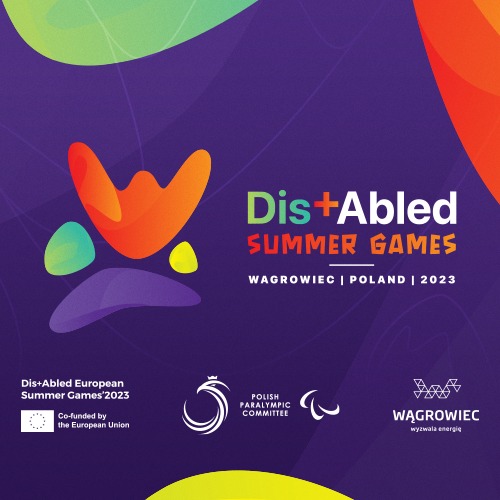
From 17-23 June, fantastic sports emotions await us in Wągrowiec – a competition combining athletes with and without disabilities! We are therefore announcing the start of the accreditation process for journalists and reporters. Those wishing to apply are invited to send their applications to [email protected]. Applications should include name, surname, the editorial office represented and the number of the press card (if the journalist has one). Applications will be accepted until 13 June. See you in Wągrowiec!
Artykuł We begin the process of accreditation of journalists for the Dis+Abled European Summer Games 2023 in Wągrowiec! pochodzi z serwisu Polski Komitet Paralimpijski.
]]>Artykuł Artur Siódmiak and Milena Olszewska as ambassadors of the Dis+Abled European Summer Games 2023! pochodzi z serwisu Polski Komitet Paralimpijski.
]]>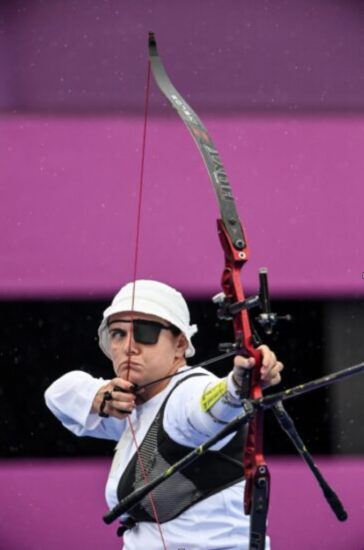
Milena Olszewska is a three-time Paralympian and two-time bronze medallist at the Paralympic Games (London 2012, Rio de Janeiro 2016). She also counts among her greatest sporting achievements the receipt of the Cup of the President of the Republic of Poland, Andrzej Duda, in recognition of outstanding sporting achievements in the year of the centenary of regaining independence. She is also a multi-medalist at the European Championships and the World Championships – individually and in the mixed with Łukasz Ciszek. The idea of promoting sport for people with disabilities and integration through sport is closed to her heart – so we are happy to have her as an ambassador of our event!
Artur Siódmiak is a co-creator of the greatest successes of Polish handball – together with the Polish national team he reached for silver (2007) and bronze (2009) at the World Championships. He is especially remembered by Polish fans for his goal after throwing across the pitch in a match against Norway – a goal scored in this unusual way after a sacrificial defence turned out to be the decisive one to advance to the semi-finals of the 2009 World Championship. He also played at the Olympic Games in Beijing (2008), where Poland finished 5th in the handball tournament. He grown in Wągrowiec – hence the initiative organised in his home town is close to his heart.
Artykuł Artur Siódmiak and Milena Olszewska as ambassadors of the Dis+Abled European Summer Games 2023! pochodzi z serwisu Polski Komitet Paralimpijski.
]]>